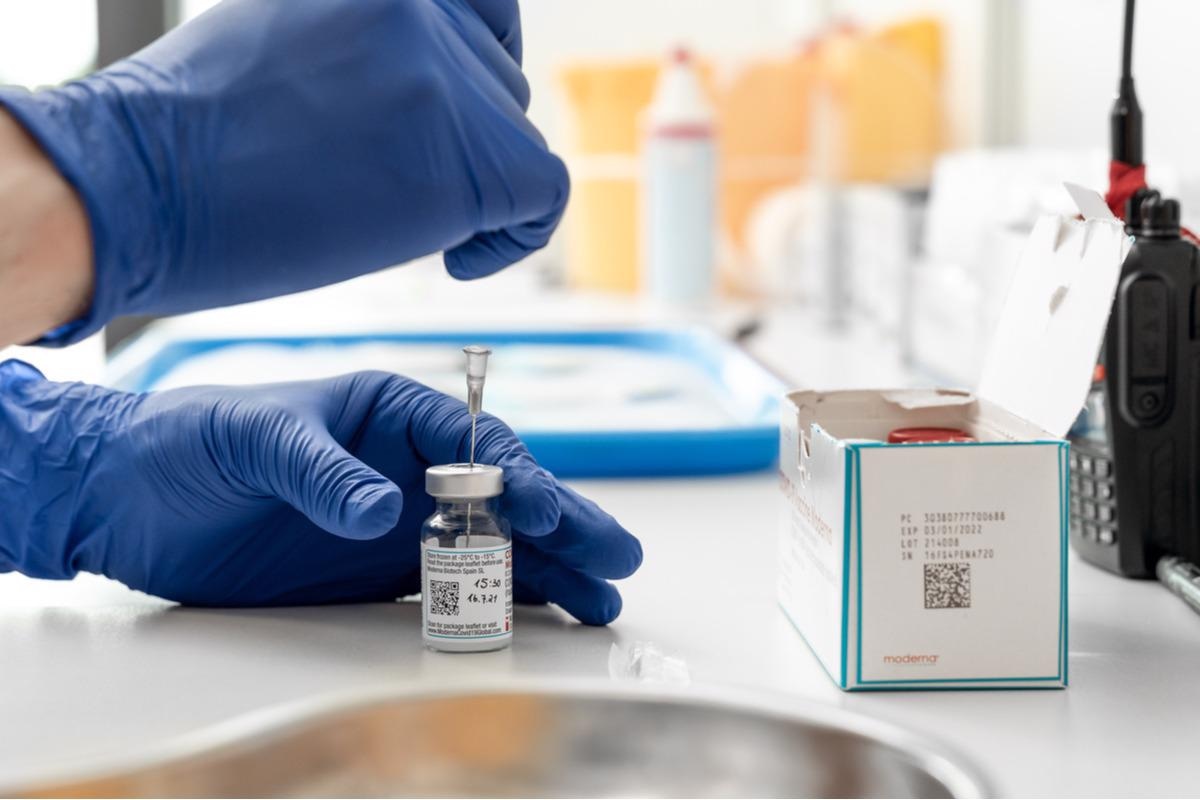mRNA vaccines found to generate neutralizing antibodies against SARS-CoV-2 Omicron variant

In a recent study posted to the medRxiv* preprint server, researchers assessed the immunogenicity of messenger-ribonucleic acid (mRNA) vaccines to generate cross-reactive neutralizing antibodies against the severe acute respiratory syndrome coronavirus 2 (SARS-CoV-2) Omicron variant of concern (VOC) in convalescent coronavirus disease 2019 (COVID-19) patients.

Study: Cross-neutralizing activity against Omicron could be obtained in SARS-CoV-2 convalescent patients who received two doses of mRNA vaccination. Image Credit: MB.Photostock/Shutterstock
The emergence of the Omicron VOC has drastically increased COVID-19 incidence worldwide. An important aspect in controlling COVID-19 is the seroconversion capacity of host neutralizing antibodies against Omicron VOC. Although previous studies have reported beneficial effects of mRNA vaccination against COVID-19, data on the cross-reactive neutralizing capacity against the Omicron variant in convalescent patients is limited.
About the study
In the present study, the researchers assessed the cross-neutralization potential of double-dose mRNA vaccination – either mRNA-1273 (Moderna) or BNT162b2 (Pfizer) – against Omicron in 23 COVID-19 patients.
SARS-CoV-2 antigen tests and polymerase chain reaction (PCR) assays were used to diagnose COVID-19 in nasal, oropharyngeal, nasopharyngeal, or saliva samples. Serum samples were collected from Japanese patients at various periods post-infection: 1–3 months, 3– 6 months, 6–9 months, and one year post-onset.
The serum obtained from patients infected between 10 March 2020 and 5 January 2021 were designated as 'term 1', those from patients infected between 28 April 2021 and 26 May 2021 were designated as 'term 2', and those from patients infected between 10 March 2020 and 5 January 2021 were designated as 'term 3'. COVID-19 patients treated with monoclonal antibodies were excluded.
Based on COVID-19 epidemiology, patients in terms 1, 2, and 3 were most likely infected with D614G, Alpha, and Delta variants, respectively. The team compared the serological titers against D614G, Omicron, and Delta in term 1; Alpha, Omicron, and Delta VOCs in term 2, and Omicron and Delta in term 3. The Bike-2 (B2) strain of SARS-CoV-2 and the D614G reference strain were used for the analyses. Virus neutralization assays against all four VOCs were performed.
Results and discussion
The serum neutralizing titers from 145 SARS-CoV-2 infected patients were compared against the VOCs. Seropositivity rates were 97.5%, 87.5%, and 37.5% for D614G, Delta, and Omicron variants, respectively.
About 40, 12, and 16 serum samples of terms 1, 2, and 3 patients, respectively, were assessed. The numbers of patients with pneumonia were 22, 12, and 16 in terms 1, 2, and 3, respectively. Double dose vaccination was administered to 19 and four convalescent patients in terms 1 and 2, respectively.
The geometric mean hemagglutination-inhibition antibody titers (GMTs) of neutralizing antibodies were 18.7, 7.7, and 1.5 against D614G, Delta, and Omicron variants, respectively. Although the GMTs of neutralizing antibodies in the patients with pneumonia in term 1 were higher than those of the patients without pneumonia, 59% seropositivity was observed in term 1 patients with pneumonia. Additionally, the GMT of neutralizing antibody against Omicron was 2.0, similar to the cut-off value.
In term 1 patients, GMTs of the neutralizing antibody against Delta and D614G variants decreased from 1–3 months post-onset to 6–9 months post-onset. About 59% and 11% seropositivity was observed against Omicron in patients with and without pneumonia, respectively. Higher seropositive rates in patients with pneumonia could be due to a stronger immune response in severe COVID-19 compared to mild infection.
In term 2 patients, the GMTs of the neutralizing antibody against Delta, Omicron, and Alpha declined from 1–3 months post-onset to 3–6 months post-onset. After double doses of mRNA vaccination, a significant increase of antibody titers against Omicron (21-51 folds) was observed. This finding indicated that there was a boost in seropositivity against Omicron by the mRNA vaccination irrespective of disease severity. However, the titers against Omicron were substantially lower than those against the D614G or Alpha strains even after vaccine administration.
The neutralizing titers against Omicron increased after two doses of mRNA vaccine in terms 1 and 2. The ratios of the antibody titers against Omicron relative to the D614G or Alpha variants from doubly vaccinated patients’ post-recovery were similar to those against Omicron compared to the D614G variant in uninfected individuals administered with a triple dose of mRNA vaccine.
Conclusion
The study findings showed that at least two doses of the mRNA vaccines are required in convalescent COVID-19 patients for the induction of serological cross-immunity against the Omicron variant, in levels comparable to triple mRNA vaccination in uninfected individuals.
Additionally, the researchers found that the COVID-19 patients previously infected with any variant of SARS-CoV-2 could be reinfected with the Omicron variant.
*Important notice
medRxiv publishes preliminary scientific reports that are not peer-reviewed and, therefore, should not be regarded as conclusive, guide clinical practice/health-related behavior, or treated as established information.
- Yukiya Kurahashi, MD1 , et al. (2022). Cross-neutralizing activity against Omicron could be obtained in SARS-CoV-2 convalescent patients who received two doses of mRNA vaccination. medRxiv. doi: https://doi.org/10.1101/2022.02.24.22271262 https://www.medrxiv.org/content/10.1101/2022.02.24.22271262v1
Posted in: Medical Research News | Medical Condition News | Disease/Infection News
Tags: Antibodies, Antibody, Antigen, Coronavirus, Coronavirus Disease COVID-19, covid-19, Epidemiology, Immune Response, immunity, Nasopharyngeal, Omicron, Pneumonia, Polymerase, Polymerase Chain Reaction, Respiratory, Ribonucleic Acid, SARS, SARS-CoV-2, Severe Acute Respiratory, Severe Acute Respiratory Syndrome, Syndrome, Vaccine, Virus

Written by
Pooja Toshniwal Paharia
Dr. based clinical-radiological diagnosis and management of oral lesions and conditions and associated maxillofacial disorders.
Source: Read Full Article